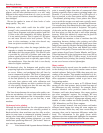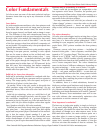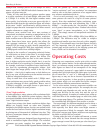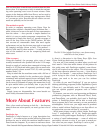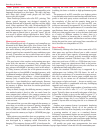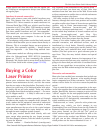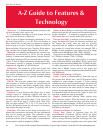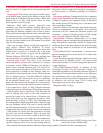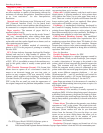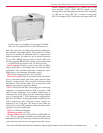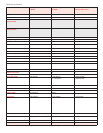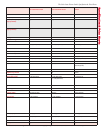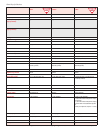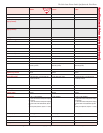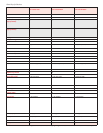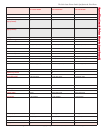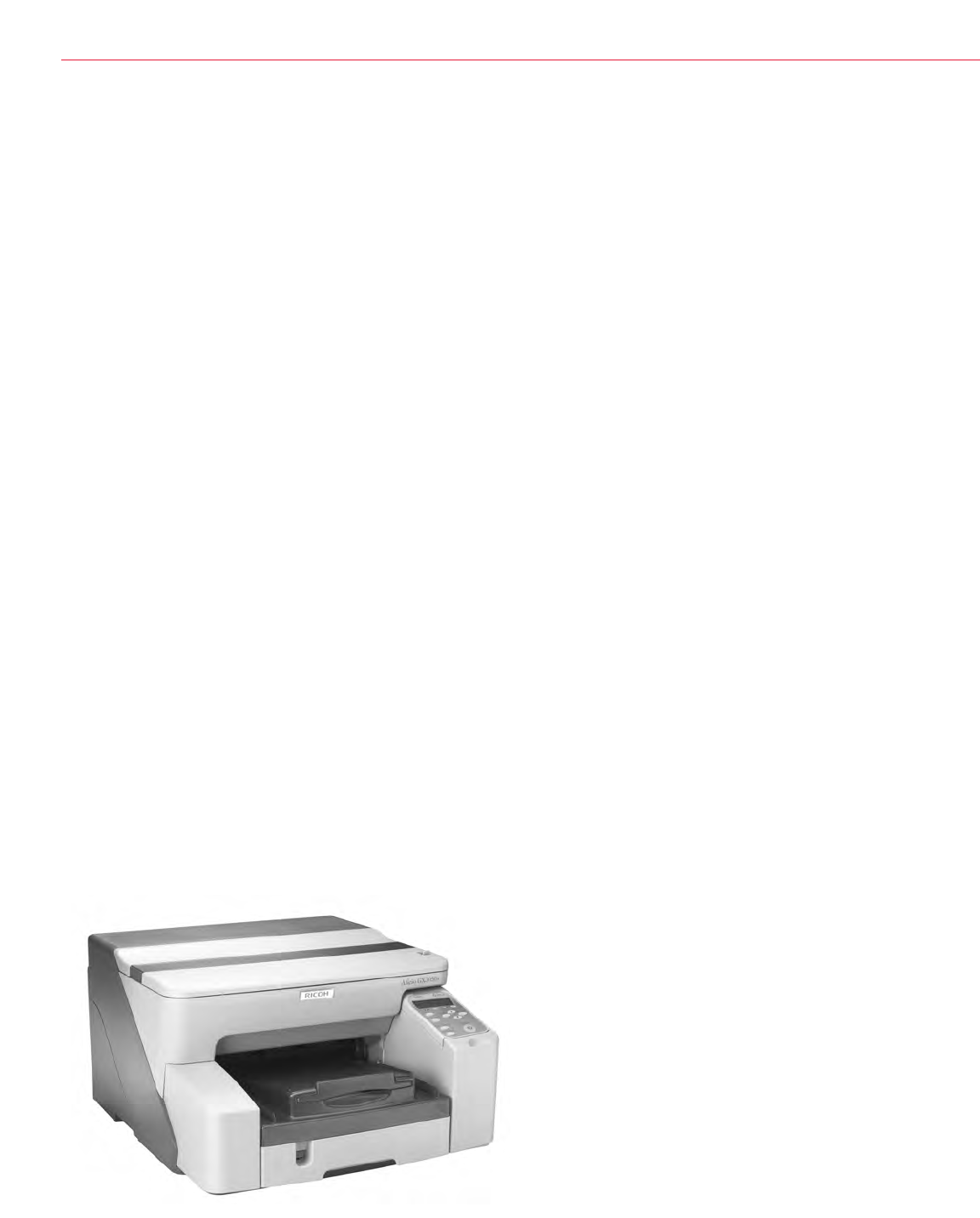
68
Entire Contents © 2006 Prog
ressiv
e Business Pub
lications
.
Copying of Pages Prohibited.To Order: 800 247 2185 or www.betterbuys.com
Megahertz (MHz): See Controller.
Native resolution: The print resolution level at which
a
n office machine is capable of functioning without the
assistance of software interpolation. Sometimes referred
to as “true resolution.”
See also Interpolation,
Resolution.
Network card: Also known as an “Ethernet card” or an
NIC (Network Interface Card), it’s the board that’s
installed into a slot in certain printers that allows them to
be connected to a computer network. See also Ethernet.
Paper capacity: The amount of paper held in a
machine’s paper tray(s).
Paper drawer/tray: We tend to use the words “drawer”
and “tray” interchangeably when talking about paper
supplies. Some vendors use the term “tray” to describe a
replaceable unit that can be slipped into a drawer, such as
one containing special paper.
Parallel port: A common method of connecting a
printer to a PC for the purpose of printing or scanning.
See also USB.
PCL: Printer industry langua
ge developed by Hewlett-
Packard and used on a large number of printers. The
printer language determines the way the printer receives
instructions from the computer software. The latest level
of PCL,
PCL 6, is available on most of the machines cov-
ered in this guide, where it usually comes paired with
PCL 5e.
PDF (P
ortable Document Format):
File f
ormat tha
t
allows users to capture all of a document’s visual ele-
ments as an electronic image you can view, print, or
ar
chi
ve on any computer. PDF was created by Adobe
Systems
, which supplies tools including a free program
(Acrobat Reader) for reading the files. The advantage of
PDF is tha
t files ar
e small yet retain the appearance of
the original image and are platform-independent. A num-
ber of printers allow you to print PDF files directly with-
out opening them up in Acrobat.
Photo card: A digital memory card that is used to store
digital photos. A growing number of color printers have
card readers that allow you to print pages from such a
card. There are a variety of photo card formats from dif-
ferent vendors (sadly, there’s no standard). Most photo
card readers will handle a variety of formats.
PictBridge: A standardized technology developed by
the Camera & Imaging Products Association for direct
printing from a digital camera to a color printer. A com-
mon feature among ink jet color machines, PictBridge is
becoming more popular on color laser machines.
PMS (Pantone Matching System): The established
industry standard for accurate color reproduction. It’s a
numbering system that defines about 750 shades of color
published in Pantone, Inc.’s color swatches. Pantone
licenses these colors to color printer manufacturers, effec-
tively endorsing their products as being able to faithfully
reproduce PMS colors.
Port: See Interface.
Portable Document Format: See PDF.
PostScript: PostScript is a printer language created by
Adobe Systems. When you use PostScript, your comput-
er sends a description of
the pa
ge to be printed to the
printer, which in turn interprets the data and outputs the
page. This contrasts with the PCL approach, under
which the computer sends a series of commands to the
printer rather than an overall page description. PostScript
works across different computer platforms — it’s not
Windows-specific — and it’
s par
ticularly well suited for
high-resolution graphics. All current PostScript printers
use the latest version: PostScript 3.
See also PCL.
ppm: P
ages per minute. It is the measure of a machine’s
engine speed when making letter-size prints or copies.
See
also Engine speed.
Print engine speed: See Engine speed.
Print memory: Print memory is usually expressed in
megabytes (MB). All other things being equal, the greater
a mac
hine’
s print memory, the greater its capacity to han-
dle complicated jobs involving large electronic files. Note
tha
t in man
y models
,
print memor
y is shar
ed with the f
ax
machine.
Printer driver: The software that permits your desktop
computer to “talk”
to the printer
. The printer driver usu-
ally comes on a CD-ROM that you must load into your
computer. (Some vendors will also let you download
drivers from the Internet.) You see the driver on your
screen as one or more dialog boxes that allow you to
choose print options such as the number of prints
desir
ed, collation, and image size and orientation.
Processor: See Controller.
R
esolution:
Electr
onic ima
g
es ar
e f
or
med out of
tin
y
Better Buys for Business
The $279 (street) Ricoh GX3050N GelSprinter prints at
29ppm using waterproof color ink.



